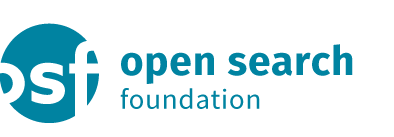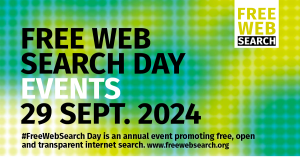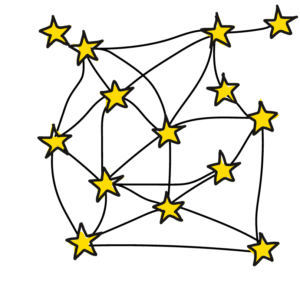With 100 on-site spots available, this year’s #ossym24 will take place as a hybrid format at Leibniz Supercomputing Centre in Garching near Munich and online.
Registration via our committee partner CERN is open now. If you sign up, this is what you can expect:
Thought leaders in web search and Artificial Intelligence from all around Europe
From 9- 11 October 2024, the #ossym will again unite researchers, data analysts, computer scientists, tech companies, but also policy makers, legal and ethical experts, and society. The sixth International Open Search Symposium will provide a forum to discuss and advance ideas and concepts of Open Internet Search, with a focus on Artificial Intelligence (AI), Search Applications and Technologies, legal and ethical aspects of Open Web Search as well as insights into the topic Wiki/Curation.
Keynotes on ethical, societal and economic issues in the Digital Information Age
The #ossym24 will feature keynotes on digital (un)sovereignty in the areas of Information Retrieval, Web Search and AI.
Roberto Viola is Director General, Communications Networks, Content and Technology at the European Comission. He will speak to the importance of Open Web Search and a quest for digital sovereignty in Europe.
Bestselling Author, Media Scientist and University Lecturer Martin Andree will talk about „The Internet of monopolies. How we are taking back the net“. Richard Socher – CEO at You.com will present the innovative AI-extended search engine that implemented LLMs even pre-ChatGPT.
#ossym24 brings you research sessions on „Preprocessing and ML for Search“ as well as „LLMs, RAG and NER“
2 Parallel Session tracks cover cutting edge study results and paper findings surrounding Retrieval Augmented Generation and Scientific Knowledge Graphs for Scientific purposes, Scientific Summary Creation through LLMs, Grammar Rules for Textgeneration and more.
Science Tracks surrounding OpenWebSearch.eu
Research tracks of the symposium will include a Lightweight Approach to Crawling, OWLer for distributed and collaborative Open Web Crawling, Federated Data Infrastructure for Open Web Search and Open Console insights.
Information and Registration
The #ossym24 will be hosted – in person and online – by the Leibniz Supercomputing Centre in Garching near Munich from 9th to 11th October. Participation is free of charge with only 100 on-site seats available.
Find all information on sign up: https://opensearchfoundation.org/en/events-osf/ossym24/
The Open Search Foundation e.V. is a European movement to create the foundation for independent, free and self-determined access to information on the Internet. In cooperation with research institutions, computer centres and other partners, we’re committed to searching the web in a way that benefits everyone. Motto: „Together for a Better Net“.
Contact
:
Open Search Foundation e.V. – OSF
Christine Plote

 Freedom of information and democracy require open access to online resources. The #FreeWebSearch Day on 29 September brings this topic to the table bundling participatory actions online and offline.
Freedom of information and democracy require open access to online resources. The #FreeWebSearch Day on 29 September brings this topic to the table bundling participatory actions online and offline.